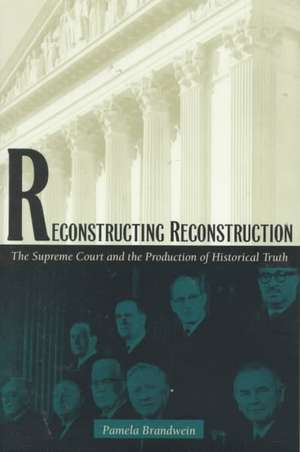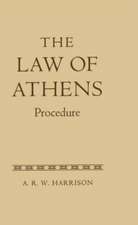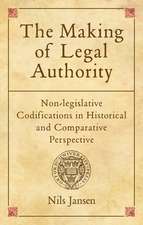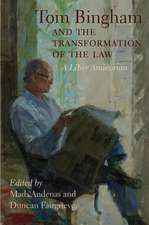Reconstructing Reconstruction – The Supreme Court and the Production of Historical Truth
Autor Pamela Brandweinen Limba Engleză Paperback – 12 iul 1999
Delving into the circumstances, assumptions, and rhetoric that shaped the "official" story of Reconstruction, Brandwein describes precisely how a dominant interpretation of events ultimately emerged and what its implications have been for twentieth-century judicial decisions, particularly for Supreme Court rulings on civil rights. While analyzing interpretive disputes about slavery, Brandwein offers a detailed rescoring of post-Civil War legislative and constitutional history, including analysis of the original understanding of the Fourteenth Amendment. She identifies the perspectives on Reconstruction that were endorsed or rejected by the Supreme Court. Explaining what it meant--theoretically and practically--to resolve Reconstruction debates with a particular definition of slavery, Brandwein recounts how the Northern Democratic definition of "ending" slavery was not the only definition, just the one that prevailed. Using a familiar historical moment to do new interpretive work, she outlines a sociology of constitutional law, showing how subjective narrative construction can solidify into opaque institutional memory.
Preț: 273.30 lei
Nou
Puncte Express: 410
Preț estimativ în valută:
52.30€ • 54.29$ • 43.61£
52.30€ • 54.29$ • 43.61£
Carte tipărită la comandă
Livrare economică 22 martie-05 aprilie
Preluare comenzi: 021 569.72.76
Specificații
ISBN-13: 9780822323167
ISBN-10: 0822323168
Pagini: 288
Dimensiuni: 156 x 234 x 24 mm
Greutate: 0.67 kg
Ediția:New.
Editura: MD – Duke University Press
ISBN-10: 0822323168
Pagini: 288
Dimensiuni: 156 x 234 x 24 mm
Greutate: 0.67 kg
Ediția:New.
Editura: MD – Duke University Press
Notă biografică
Textul de pe ultima copertă
"An important call for the development of a 'sociology of constitutional law.' Brandwein forces us to pay more attention to the ways in which the reconstruction of history (in this case, the history of Reconstruction) becomes a vital resource in contemporary constitutional politics."--Howard Gillman, University of Southern California
Cuprins
Acknowledgments
1. Introduction
2. Slavery as an Interpretive Issue in the 39th Reconstruction Congress: The Northern Democrats
3. Republican Slavery Criticism
4. The Supreme Court’s Official History
5. Dueling Histories: Charles Fairman and William Crosskey Reconstruct “Original Understanding”
6. Recipes for “Acceptable” History
7. History as an Institutional Resource: Warren Court Debates over Legislative Apportionment
>8. Constitutional Law as a “Culture of Argument”: Toward a Sociology of Constitutional Law
9. Conclusion
Notes
Bibliography
Index
1. Introduction
2. Slavery as an Interpretive Issue in the 39th Reconstruction Congress: The Northern Democrats
3. Republican Slavery Criticism
4. The Supreme Court’s Official History
5. Dueling Histories: Charles Fairman and William Crosskey Reconstruct “Original Understanding”
6. Recipes for “Acceptable” History
7. History as an Institutional Resource: Warren Court Debates over Legislative Apportionment
>8. Constitutional Law as a “Culture of Argument”: Toward a Sociology of Constitutional Law
9. Conclusion
Notes
Bibliography
Index















